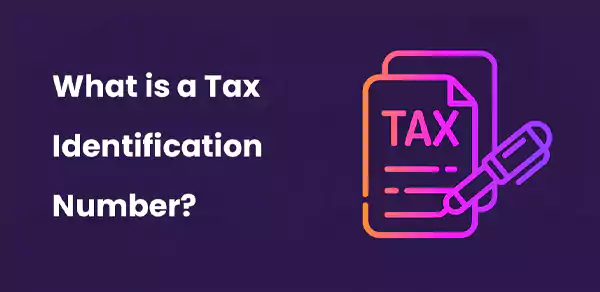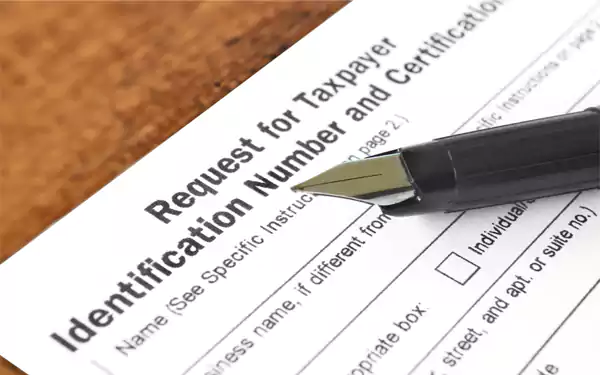Why Do You Need a Tax Identification Number UK? (Explained)
“Having a TIN number is truly a privilege in the UK, much like businesses that benefit from accounting service for startup can thrive. It opens the door for many tax benefits and simplifies financial records, much like how efficient bookkeeping services support robust financial management.”
Owning a Tax Identification Number UK (TIN) is mandatory for both individuals and businesses. It is an official tax identifier used to monitor citizens’ tax records and ensure they are paying taxes properly.In many cases, organizations also rely on payroll accounting services to complement their tax processes, while savvy managers often integrate a cash flow management service to maintain healthy operations.
But how would you know what your UK TIN number is?
Don’t worry —I’ll guide you on how to obtain a Tax identification Number UK. Just swiftly scroll through this article to explore detailed information on TIN, its types, and the registration process.
What is a Tax Identification Number UK?

In the United Kingdom, a Tax Identification Number is a unique number assigned by the government to individuals and companies. The purpose of TIN is to track the taxation process, ensuring that residents and businesses pay appropriate taxes.
Besides this, His Majesty’s Revenue & Customs (HMRC) need to collect all direct and indirect taxes, tax credit payments, and administer benefits to citizens.
However, according to the Tax Identification Number UK, people under 16 years of age don’t have the right to work in the United Kingdom. That’s why they are not liable for UK TIN number contributions.
In simple terms, a TIN number UK is the identity of a taxpayer who pays taxes to the government based on the general rule.
Different Types of TIN Numbers

As I already informed you, HMRC (UK tax authority) is responsible for issuing a TIN in the UK. Despite this, the term “Tax Identification Number” is not officially used by businesses and individuals. There are more generic terms for various types of TIN numbers available for personal and business taxation. In many cases, firms that invest in proper financial processes may also rely on year-end accounts services to complement their regulatory reporting.
Let’s take a look at different types of TIN number UK.
1. Unique Taxpayer Reference (UTR)
A Unique Taxpayer Reference (UTR) is a unique number assigned to every person or business that files personal tax returns. It basically consists of 10 digits that facilitate tax management. For example, 5647991247.
For Company and Partnership
HMRC issues a ‘Corporation Unique Taxpayer Reference” to all companies, including a Limited Liability Company, when they register at Companies House.
Uses of a Tax Identification Number UK as UTRs:
- Registering for a corporation tax.
- Notifying HMRC for certain changes in partnership.
- Filing Company Tax Returns and annual tax to HMRC.
- Documentation for VAT and PAYE.
- Registering an LLP or LP for Self Assessment.
For Personal UTRs
If you are a sole trader or partner in a firm, HMRC assigns you a Personal Unique Taxpayer Reference for tax registration.
Uses of a Personal UTR:
- Submitting tax returns.
- Pay your tax bills.
- An opportunity to work with an accountant.
2. National Insurance Number (NINo)
NINo, also known as National Insurance Number, is a unique UK TIN that allows you to link tax payments with your name. HMRC automatically sends you a NINo in the 3 months before your 16th birthday.
Furthermore, it is an alphanumeric code starting with two alphabets with six numbers in the middle and ending with a single letter. For example, QP245679B.
Uses of a National Insurance Number:
- HM Revenue and Customs
- In payroll systems as an employer.
- Department for Work and Pensions.
- When claiming House Benefits.
- Issuing any student loan.
3. Company Registration Number (CRN)
A Company Registration Number (CRN) is also termed a “Company Number or Companies House Number.” It is a special identifier to verify the legitimacy of a company or LLC.
Additionally, Companies House issues a CRN with a combination of 8 characters. Sometimes, it consists of 8 numbers or 2 letters followed by 6 numerals. For example, 12345678 or CC258796.
Uses of a Company Registration Number:
- Filing an annual confirmation statement with Companies House.
- Paying your Corporation Bill Tax.
- Reporting for Company Tax Return and Partnership Tax Return.
- Issuing share certificates.
- Updating company details with Companies House.
4. Value Added Tax (VAT) Registration Number
VAT registration number is a UK TIN number assigned to companies when they register under Value Added Tax. You have to pay tax when your VAT turnover exceeds £90,000.
Moreover, a VAT number in England, Scotland, and Wales is formed with the letter “GB” and 9 numbers. For example, GB 123456789. On the other hand, in Northern Ireland and the European Union, a VAT number starts with “XI”. For example, XI 123456789.
Uses of a VAT registration number:
- Sending a VAT Return to HMRC.
- Paying your VAT bill.
- Applying for a VAT refund.
- Dealing with suppliers.
- Avoid financial penalties from HMRC.
5. Employer PAYE Reference
The last type of Tax Identification Number UK is the employer’s PAYE reference. It is also known as the “Employer Reference Number or PAYE reference.” HMRC primarily issues this UK tax ID to businesses that register as employers.
In addition, a PAYE reference is created with a unique format: a 3-digit tax office number, a slash forward, and a reference number. For example, 123/PG456.
Uses of an Employer Reference Number:
- When setting your payroll.
- Paying wages and PAYE bill.
- Issuing payslips and P60s.
- Submitting PAYE reports to HMRC.
- Managing the collection of Income Tax and National Insurance contributions from employees’ salaries.
Also Read: Outsourced Accounting: A Way to Delegate the Accounting Burden
Why is a Tax Identification Number Important?
A Tax Identification Number UK is more than just an official document. It plays a vital role in completing your legal requirements related to tax activities efficiently. Moreover, you can also benefit from a Tax ID UK in other legal operations.
Here are the various reasons why a TIN is important for everyone in the UK.
1. Tax Compliance
HMRC uses a UK TIN number to monitor your tax payments. You must adhere to taxation rules and regulations by accurately reporting a TIN number. Without a proper UK Tax ID number, you may face legal penalties and delays in the tax process.
2. Legal Adherence
In the UK, tax authorities require a TIN number for activities like filing taxes and paying employees to deduct their taxes. If you don’t have the appropriate TIN number UK, you can’t legally conduct business, hire employees, or collect tax compensation.
3. Banking and Financial Transactions
When you open a bank account, the bank authorities use your UK tax identification number to verify your business identity. Additionally, a TIN is also helpful in granting loans, lines of credit to payroll accounts, and other financial services.
4. Credibility
Having a registered UK Tax ID number is a blessing to showcase the authenticity of your business. Whether you’re working with financial institutions or creating a vendor account, a TIN number is useful to represent that your business is following federal rules.
5. Employee Payments
As an employer, you must have a UK TIN number to submit employee wages and taxes to HMRC. Besides this, a Tax ID no. is essential for calculating employee-related taxation for a transparent and fair tax system.
How Do You Register for a TIN Number in the UK?

Registering for a Tax Identification Number UK is a simple and effortless process. You can easily obtain your personal or company TIN number by completing the official form of HMRC.
In addition, HMRC requires your personal information, such as name, address, date of birth, or company registration details for the entity. Moreover, you have to submit other documents as proof, including a passport, driver’s license, bills, bank statements, and National Insurance Number.
After providing all details, HMRC automatically assigns you a UTR number for Self-Assessment. Once you are registered as a taxpaying person, it’s your responsibility to maintain accurate records and meet tax obligations with the HMRC.
Final Thoughts
Tax Identification Number UK serves as a unique identifier of legitimacy for an independent taxpayer and a business owner.
On top of that, it is important to have a TIN number UK to handle all taxation process with HMRC, ensuring a fair and effective tax system. By obtaining a UK TIN number, your business has the legal authority and credibility, which also avoids financial penalties.
Furthermore, a Tax ID UK also helps the government to track taxpayers, streamline essential operations, and collect databases.
Read Next: Corporate Accounting: Definition, Importance, Types, and Career Potential in 2025
Frequently Asked Questions
Ans: Yes, if you are a sole trader or self-employed, you must register for TIN numbers like UTR and NINo to fulfill tax obligations.
Ans: People who are below 16 years of age are not allowed to work in the United States. Thus, they are not eligible for a TIN number.
Ans: A UTR consists of 10 digits, like 1245679538, which is assigned by HMRC as a tax reference number.
Ans: National Insurance Number (NINo) is automatically assigned in the 3 months before the 16th birthday.